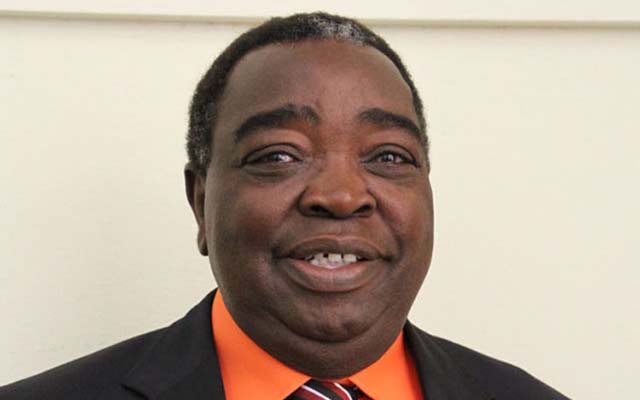WASHINGTON. – US President Donald Trump says he is “least racist person you’ve ever interviewed” as he denies making comment
Trump has insisted he is not racist following an international outcry over an offensive comment he is accused of making about some African, central American and Caribbean countries.
The US president was criticised by the UN and the African Union (AU) after it was credibly reported that he had referred to Haiti, El Salvador and nations in Africa as “shithole countries” during an Oval Office meeting on Thursday.
Trump defended himself on Sunday, telling reporters “I am not a racist” as he arrived for dinner at his private golf club with the House majority leader, Kevin McCarthy.
“I am the least racist person you have ever interviewed. That I can tell you,” he said.
On Friday, the UN human rights spokesman, Rupert Colville, condemned the “shocking and shameful” comment.
“You cannot dismiss entire countries and continents as ‘shitholes’ whose entire populations are not white and, therefore, not welcome,” he told reporters at a news briefing in Geneva.
Trump has previously tried to pass a ban on travel to the US from various Muslim-majority countries, which a judge said was a continuation of his “promise to exclude Muslims from the United States”.
Colville said: “This isn’t just a story about vulgar language. It’s about opening a door to humanity’s worst side. It’s about validating and encouraging racism and xenophobia that will potentially disrupt and even destroy the lives of many people.
“And that’s perhaps the single most damaging and dangerous consequence of this type of comment by a major political figure.”
The AU, made up of 55 countries, also condemned the remark and demanded an apology.
“This is even more hurtful given the historical reality of just how many Africans arrived in the United States as slaves and also terribly surprising, as the United States remains a massively positive example as just how migration can give birth to a nation,” said a spokeswoman for the union’s chair.
Trump has faced claims of racism throughout his adult life. He insisted Barack Obama was not born in the US during his presidency and demanded that his predecessor release his birth certificate to demonstrate otherwise.
In 1989, he took out full-page ads in four New York newspapers demanding the return of the death penalty after five black teenagers were arrested over the rape of a woman in Central Park. They were innocent.
In 1973, the family business, of which Trump was president, was sued by the Department of Justice for refusing to rent apartments to African Americans. The suit was settled “without an admission of guilt” and the organisation was required to make a series of changes designed to ensure it complied with anti-discrimination laws.
The comment about other nations was reportedly made during a bipartisan meeting aimed at finding a compromise deal for Dreamers, young people without legal immigration status who were brought to the US as children. Unless an agreement is reached, the Daca program will be scrapped in early March.
Hopes of reaching a deal were unravelling on Sunday amid a war of words over the remark.
After the meeting, the Democratic senator Dick Durbin said Trump had made repeated “hate-filled, vile and racist” remarks. Lindsey Graham, a Republican senator, described the reports as “basically accurate”.
Two other Republican senators, David Perdue and Tom Cotton, issued a statement on Friday saying they did not “recall the president saying those comments specifically”. Two days later, they backtracked.
Perdue described the reports that Trump used the word as a “gross misrepresentation”. He said Durbin and Graham had been mistaken. All four senators were at the meeting.
“I am telling you that he did not use that word. And I’m telling you it’s a gross misrepresentation,” Perdue said on ABC’s This Week.
Cotton told CBS’s Face the Nation that he did not hear the word being used “and I was sitting no further away from Donald Trump than Dick Durbin was”.
On Sunday, Trump said: “Did you see what various senators in the room said about my comments? They weren’t made.” – The Guardian
















